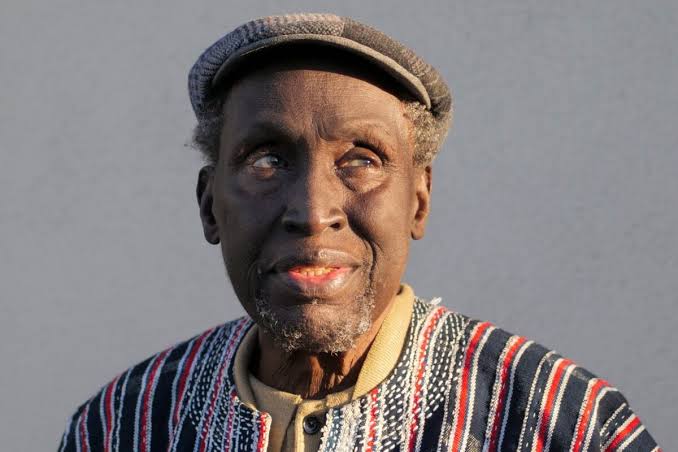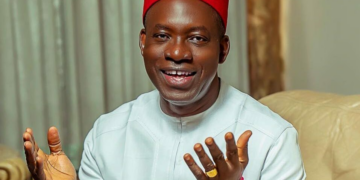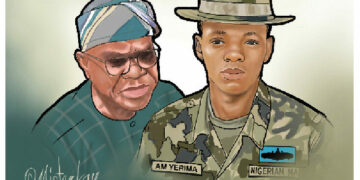“Being is one thing; becoming aware of it is a point of arrival by an awakened consciousness and this involves a journey.”― Ngugi wa Thiong’o, In the Name of the Mother: Reflections on Writers and Empire
In the pantheon of African literary giants, few names resonate with as much power, consistency, and ideological clarity as Ngũgĩ wa Thiong’o. For over six decades, the Kenyan novelist, playwright, essayist, and activist has been a relentless advocate for the cultural and political liberation of Africa. His work—spanning fiction, non-fiction, drama, and theory—has fundamentally reshaped our understanding of colonialism, language, resistance, and identity.
Ngũgĩ’s legacy is especially poignant for us in Nigeria, where the struggle for cultural decolonization continues to echo in our literature, politics, and educational institutions. Like Chinua Achebe and Wole Soyinka, Ngũgĩ elevated African thought on the global stage, but his path has been uniquely defined by his bold rejection of the colonial languages and paradigms that dominate African discourse.
One of Ngũgĩ’s most enduring contributions is his radical approach to language. In his seminal work Decolonising the Mind (1986), he argued that language is not merely a tool of expression—it is a vessel of memory, culture, and consciousness. To write in colonial languages, he warned, is to surrender the African soul to imperialism.
In a bold act of resistance, Ngũgĩ abandoned English altogether and began writing in his native Gikuyu, starting with his prison novel Devil on the Cross (1980). His message was clear: African stories must be told in African languages to truly reclaim their authenticity. In our own Nigerian context—where English dominates education, media, and literature—Ngũgĩ’s position challenges us to re-evaluate how we honour our mother tongues.
Ngũgĩ’s early novels remain powerful explorations of the Kenyan and Africa colonial experience and continue to speak to broader African realities. In Weep Not, Child (1964), his first novel and the first major novel in English by an East African, we meet Njoroge, a young boy who believes education is the path to freedom. Set against the backdrop of the Mau Mau rebellion, the story is a haunting tale of shattered dreams as Njoroge’s world collapses under the weight of colonial violence and betrayal. The story mirrors countless African youths’ aspirations—and the systems that undermine them.
In The River Between (1965), Ngũgĩ presents a spiritual and cultural struggle between two Gikuyu communities divided by colonial religion and tradition. Waiyaki, the novel’s tragic hero, seeks to reconcile the conflicting forces of education and indigenous heritage. His failure is a metaphor for the difficulties faced by those caught between modernity and ancestral values—a tension familiar to many Nigerian communities facing cultural erosion.
Pointedly, Ngũgĩ’s life was revolutionary as his writing. His co-authored play I Will Marry When I Want (1977), performed in Gikuyu with local villagers, critiqued Kenya’s neocolonial elite and their exploitation of the poor. For this, he was arrested and detained without trial by the Kenyan government—a stark reminder that speaking truth to power in Africa often comes at a price.
Furthermore, His prison memoir, Detained: A Writer’s Prison Diary, is a compelling chronicle of artistic defiance. For Ngũgĩ, the pen is not just mightier than the sword—it is a sword. A sword of justice. He remains a living example of how literature and activism can and must coexist in the African context.
Indeed, Ngũgĩ was never content to see colonialism as a thing of the past. In works like Petals of Blood (1977), he exposes how African leaders, post-independence, often perpetuate colonial systems of exploitation, enriching themselves at the expense of their people. The novel’s grim portrayal of greed and betrayal resonates powerfully in postcolonial Nigeria, where dreams of nationhood are too often undermined by corruption and inequality. He saw colonialism as lingering shadows of underdevelopment and state capture in Africa particularly in his home country of Kenya.
Ngũgĩ challenges us to confront neocolonialism in all its forms—economic, cultural, and political. His work reminds us that political independence means little without cultural self-knowledge and sovereignty.
Ngũgĩ’s later works, especially Wizard of the Crow (2006), offer an imaginative rethinking of African modernity. Set in the fictional Republic of Aburĩria, the novel is a sweeping satire of dictatorship and greed. Through magical realism and folklore, he crafts a vision of an Africa that is both humorous and tragic—an Africa where the absurdities of power mimic real-life authoritarian regimes.
What makes Wizard of the Crow remarkable is not just its critique of tyranny, but its faith in the possibility of change. Ngũgĩ urges us to imagine new African futures—grounded in justice, rooted in culture, and open to the world without being overrun by it.
Interestingly, Ngũgĩ wa Thiong’o’s influence is not confined to Kenya. His works are studied in universities across Nigeria, Africa, and the global South. His call to decolonize African knowledge systems resonates in contemporary movements such as Rhodes Must Fall and Decolonise the Curriculum. Generations of African writers—from Chimamanda Adichie to Tsitsi Dangarembga—walk through the literary and ideological paths he helped clear.
As Africa grapples with questions of identity, governance, and global relevance, Ngũgĩ’s voice remains one of the most courageous and consistent. He has taught us that decolonization is not just a historical event—it is a cultural and intellectual project that must continue until Africa fully owns its voice.
Ngũgĩ wa Thiong’o is more than a writer. He is Africa’s conscience. And as we honour his towering legacy, we are reminded that literature—when committed to truth—can shake empires, awaken nations, and heal the soul of a continent. Kwaheri hayati Ngugi Thiong’o!
– Orovwuje is a Lagos-based international development consultant and public affairs analyst specialising in human rights, policy advocacy, and African cultural thought





